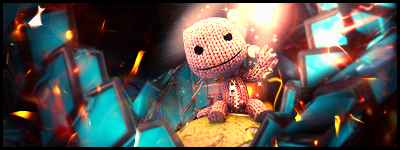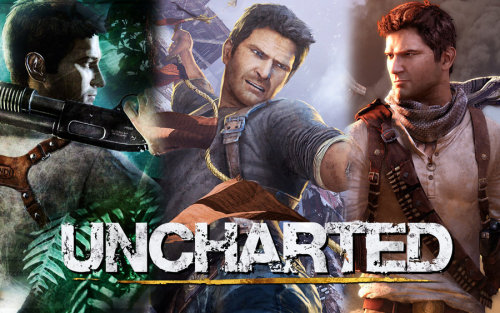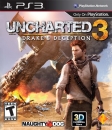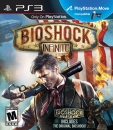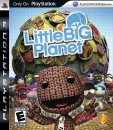Hello guys,
I bring you a very interesting read for people who might not have gotten what Naughty Dog did with Uncharted 3.
It's also a very strong reason as to why I love this game so much.
Letz go:
-----------------------------------
--HUGE SPOILERS BELOW--
Uncharted 2: Among Thieves was, to put it mildly, pretty well-received. Less known for innovating and more known for wrapping all the elements of its gameplay and narrative into a sleek package, the title proved that on a purely technical level, being a master of all trades isn’t quite as important as bringing gameplay and narrative together in a seamless fashion. It was flawed, to be sure, but an impressive accomplishment.
So Naughty Dog had their work cut out for them with Uncharted 3: Drake’s Deception. It was a game with enough pre-release hype that it felt like the months leading up to Metal Gear Solid 2 all over again. Drake’s Deception couldn’t possibly live up to the hype. To many, it did. To others, not so much. Naughty Dog’s ability to tell a story while seamlessly weaving it in and out of gameplay is still unparalleled. But the toned down story of Drake’s Deception itself meant that series-defining traits stood at odds with the story that needed to be told, versus the story that the some of its audience expected.
In Among Thieves, Drake’s motivation was clear-cut. Drake was hired to do a job. Drake’s partner-in-crime betrayed him. Drake decided to turn the tables on his former partner. Things unravel from there. Among Thieves touched on Drake’s ego and sense of self-worth being tied directly to his life as a treasure hunter – we saw him ready to give up after nearly being killed for trying to play the hero. His motivation in Drake’s Deception (particularly to himself) is decidedly less clear.
Early on in the story, after narrowly escaping death by burning to death in a chateau, Sully stops Drake in his tracks with a question that I was wondering to myself at the time:
“I gotta say I’m losing the plot here. Remind me again why we’re doing this?”
It’s a question Drake has no answer to. By this point in the story, Drake is ahead of Marlowe – he has Sir Francis Drake’s ring, decoder, and map. He has everything Marlowe wanted for herself, yet he’s focused on moving forward, without real any reason to do so and despite evidence that he may not like what he finds when he uncovers his ancestor’s secrets. The sheer momentum is pushing him, and like a kid in a candy shop, Drake’s impulse control is nonexistent.
And there it is. It’s in Drake that the player is being reflected – much like him, players often have no substantial reason to move forward in the games they play. They’re presented with the thinnest of story lines, plotted together rather arbitrarily where each thing they do hurls them toward the next grandiose event that continues the chain. Through sheer compulsion, they find themselves plowing through hordes of enemies, with only the most superficial motivation powering their actions.
Although Drake is forced to face these questions about himself throughout Drake’s Deception, it is a question meant to hearken back to previous stories in the series as well. Why is it that Drake feels compelled to push himself into such situations, despite their destructive nature? Uncharted 3’s storytelling never quite breaks the fourth wall, though it certainly pushes against it – if not for gaming as a whole, then definitely for the series. Where is the line that separates Drake from any one of the lunatics he competes with? And what does this mirror in the player? Do players even need reasons, or is pure momentum, complete adrenaline, the only motivation necessary? It is not judgment Naughty Dog is passing, they are merely asking the questions so that players can consider it themselves – similar to the fashion in which Sully does not expressly condemn Drake for his actions, he only asks him to be straightforward with the reasoning behind them.
In Yemen, it’s revealed that Elena and Drake have separated; the implication being his obsession with treasure hunting has pushed her away. Similar to Chloe earlier on in the game, Elena had sensed Drake’s obsession bordering on self-destructive, and distanced herself from it. Because of the Uncharted series’ inextricable mix of story and gameplay, Drake’s character himself has changed the dynamic of the game. Gone are the days where his allies would support him, even begrudgingly. Drake’s Deception is more intimate. It’s heavier. For all its over-the-top moments, it carries a real sense of weight. If not for Sully’s presence, Drake’s latest adventure would feel completely foreign and isolated.
“[Sully] would go to the ends of the earth for you, Nate. Just – don’t ask him to,” Elena says as she wonders just why Drake is okay with putting Sully’s life in danger as well.
This is the first moment when we’re given words to an underlying theme from the beginning of the series. Drake and Sully’s affection for one another and the needless danger Sully is put in because of it. Up until this game, Sully has had no issues both having Drake’s back as well as even backing out when he thought things were getting too crazy.
But Drake is much more persistent in this game, and Sully sticks with him out of loyalty despite Drake’s questionable motives. Everyone else has detached themselves from him. Players have always learned more about Drake through his interactions with his friends – in fact, Drake has learned more about himself through those interactions. Now, those characters are largely in the background.
It’s within these changes that lay the biggest transformation in Drake’s Deception – the focus is much more in what is implied than what is said. Drake’s motivation is never explicitly stated, because he doesn’t even know what it is. The audience learns of it from the questions he is asked by those closest to him. Players used to the character dynamics in Among Thieves might not even initially be able to place why this game feels so different. Surely Naughty Dog knew they’d be disappointing some, or at least throw them for a loop – but these changes needed to happen. The story of Drake losing those closest to him is absolutely essential for his growth as a character.
His obsession comes to a head when he reaches Ubar. Drake and Sully aren’t more than a few minutes into the city when one of Drake’s worst fears comes true – Sully takes a bullet in the back, and dies on the spot. It’s soon revealed that this was a hallucination caused by a drug in Ubar’s water supply – one meant to bring a person’s deepest fears to the surface – but it is enough that the culmination of everyone he has pushed away or taken for granted finally snaps him out of his obsession.
Those moments where the player must proceed without Sully are definitely noteworthy, though. Drake’s anger is palpable. The chapter following the shooting is bizarre, and for more reasons than Drake’s drugged-up visions of the Djinn. There’s no sense that someone will show up in the nick of time to help Drake out. The sense of solidarity the player feels with Drake is somewhat removed, as they see him furiously chase after Talbot. Drake feels completely different. The game feels noticably different.
Naughty Dog proved to be incredibly brave by allowing the story that needed to be told to take the forefront Drake’s Deception. It may have sacrificed Among Thieves’ boyish sense of freshness, but in its place stands a somewhat more grown-up experience, albeit one that is definitely frayed around the edges. It stands as one of the few examples of video games telling a story that is necessary to the series, but may or may not be what anyone had asked for to begin with – another notable example being Metal Gear Solid 3.
...Naughty Dog showed remarkable restraint in an industry more interested in going bigger than telling an honest story. That alone should earn them a lot of credit.
-----------------------------------
